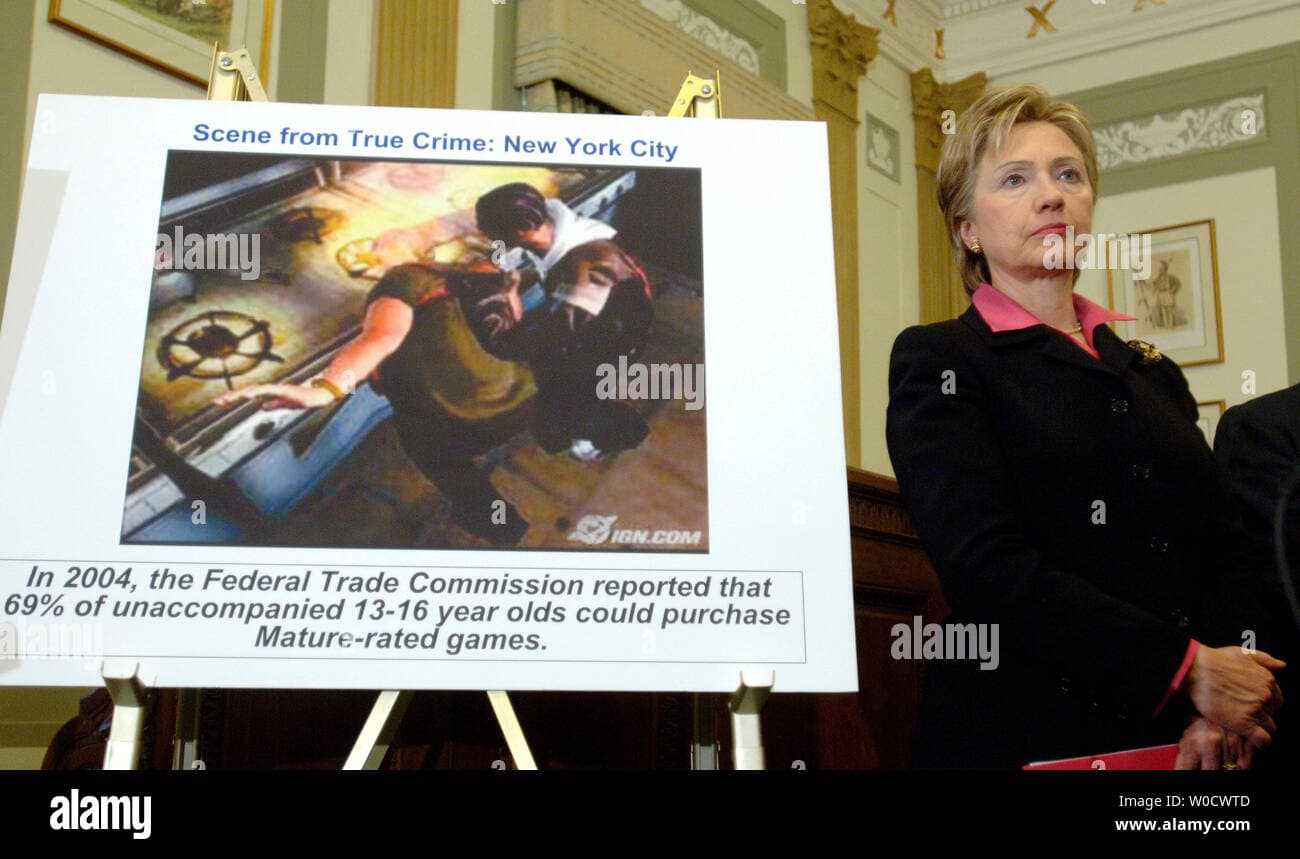Clinton Doubled Down on 2005 Claim: Violent Video Games Akin to Smoking and Lung Cancer

In a 2005 interview with CBS, then-Senator Hillary Clinton firmly reiterated her stance on the potential dangers of violent video games, drawing a stark comparison to public health concerns. When questioned if her efforts mirrored previous moral panics, Clinton reportedly "doubled down" on her position. She quoted a study, stating, > "playing violent video games is to an adolescent’s violent behavior what smoking tobacco is to lung cancer.
This assertion came amidst a broader legislative push by Clinton, who advocated for the Family Entertainment Protection Act. The proposed legislation aimed to prohibit the sale of Mature (M) and Adults Only (AO) rated video games to minors, with provisions for financial penalties against retailers failing to enforce these age restrictions. Her campaign was fueled by concerns that such games were "stealing the innocence of our children," as she articulated at the time.
The specific analogy comparing video games to tobacco and lung cancer was attributed by Clinton to the American Academy of Pediatrics (AAP). However, later analysis indicates that while an AAP report did suggest a strong effect, the precise phrasing of the comparison appeared in news coverage about the report rather than directly within the original AAP publication. This nuance highlights the intense public and political debate surrounding the issue.
Despite the strong rhetoric and legislative attempts, scientific consensus on a direct causal link between violent video game play and real-world aggression remains elusive. Numerous studies have explored this relationship, often concluding that any correlation is weak, and that other factors, such as family environment and pre-existing mental health issues, are far more significant predictors of violent behavior. Some research even suggests mixed or null effects, or that the relationship is spurious once other variables are controlled.
The video game industry, through bodies like the Entertainment Software Rating Board (ESRB), maintains self-regulatory systems to provide age and content ratings. Over the years, public perception and political engagement with video games have evolved significantly, moving from initial moral panics to a more mainstream acceptance, particularly as gaming demographics have broadened.